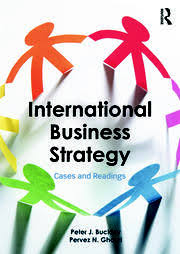
International Business Strategies
International business strategies are plans that guide commercial transactions taking place between entities in different countries. These strategies vary depending on the company’s goals, resources, and the specific characteristics of the target markets.
Common International Business Strategies:
- International Strategy: Focuses on exporting products or services to foreign markets with minimal adaptation.
- Multi-domestic Strategy: Adapts products and services to meet the specific needs of each local market.
- Global Strategy: Standardizes products and services to achieve economies of scale.
- Transnational Strategy: Combines elements of global and multi-domestic strategies, balancing global efficiency with local responsiveness.
Key Factors to Consider When Choosing an International Strategy:
- Market Potential: Assessing the size and growth potential of the target market.
- Cultural Differences: Understanding and adapting to cultural nuances.
- Economic Factors: Considering economic conditions, exchange rates, and trade policies.
- Political and Legal Environment: Navigating legal and regulatory frameworks.
- Competitive Landscape: Analyzing the competitive landscape and identifying opportunities.
- Resource Constraints: Evaluating the company’s financial, human, and technological resources.
By carefully considering these factors and selecting the appropriate strategy, companies can successfully expand their operations into international markets and achieve sustainable growth.








